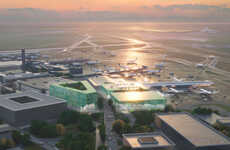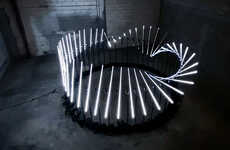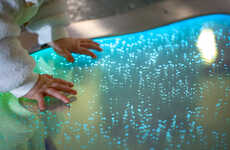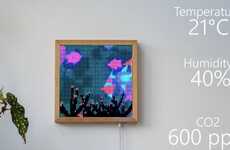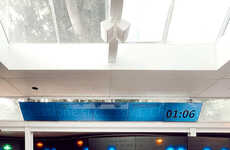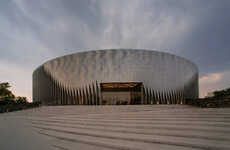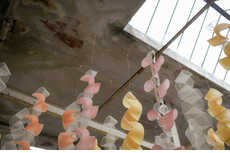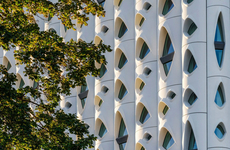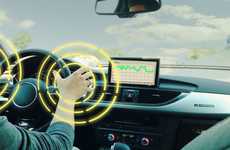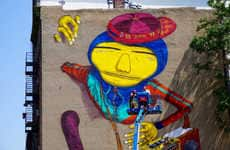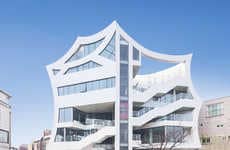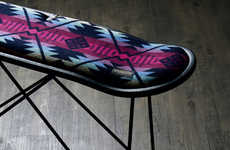
The Exterior of the Hotel WZ Jardins Responds to Outside Stimuli
David Ingram — August 10, 2015 — Eco
References: gutorequena.br & gizmag
With the idea of utilizing modern technology to better understand our surroundings the 'Hotel WZ Jardins' in São Paulo, Brazil now features a 30-storey reactive LED facade.
Made by Estúdio Guto Requena, the research project and urban art piece was designed to create a "Hacked City" where local data is collected and projected in real-time. During the daytime, a color-coded stationary metal skin displays a pixelated audio waveform recorded directly from the surrounding area of the hotel.
During the evening hours however is when the true scope of the project is fully displayed. Microphones and air quality sensors pick up both noise and air pollution, with the 200 reactive LED lights on the building changing either color or position depending on the surrounding levels. An interactive smartphone app also allows the public to manipulate the LED lights themselves using either voice commands or a simple swipe of the finger.
Made by Estúdio Guto Requena, the research project and urban art piece was designed to create a "Hacked City" where local data is collected and projected in real-time. During the daytime, a color-coded stationary metal skin displays a pixelated audio waveform recorded directly from the surrounding area of the hotel.
During the evening hours however is when the true scope of the project is fully displayed. Microphones and air quality sensors pick up both noise and air pollution, with the 200 reactive LED lights on the building changing either color or position depending on the surrounding levels. An interactive smartphone app also allows the public to manipulate the LED lights themselves using either voice commands or a simple swipe of the finger.
Trend Themes
1. Reactive LED Facades - The trend of using reactive LED facades to collect and display real-time data from the surrounding area presents opportunities for companies to create more interactive and immersive urban spaces.
2. Hacked City - The development of a 'Hacked City' using modern technology to collect and analyze local data can provide innovation opportunities for companies in urban planning, architecture, and data analytics.
3. Interactive Smartphone Apps - The increasing use of interactive smartphone apps that allow the public to manipulate LED lights using voice commands or swiping can create opportunities for companies to develop more engaging and interactive experiences for their customers.
Industry Implications
1. Architecture - Architecture firms can incorporate reactive LED facades and interactive data collection into their designs to create more immersive and functional spaces that respond to the needs of the local community.
2. Urban Planning - The use of technology to collect and analyze local data can provide urban planners with valuable insights and opportunities to create more livable and sustainable cities.
3. Data Analytics - The collection and analysis of real-time data from reactive LED facades can provide businesses with valuable insights and opportunities to create more targeted and personalized marketing campaigns for their customers.
1.7
Score
Popularity
Activity
Freshness

